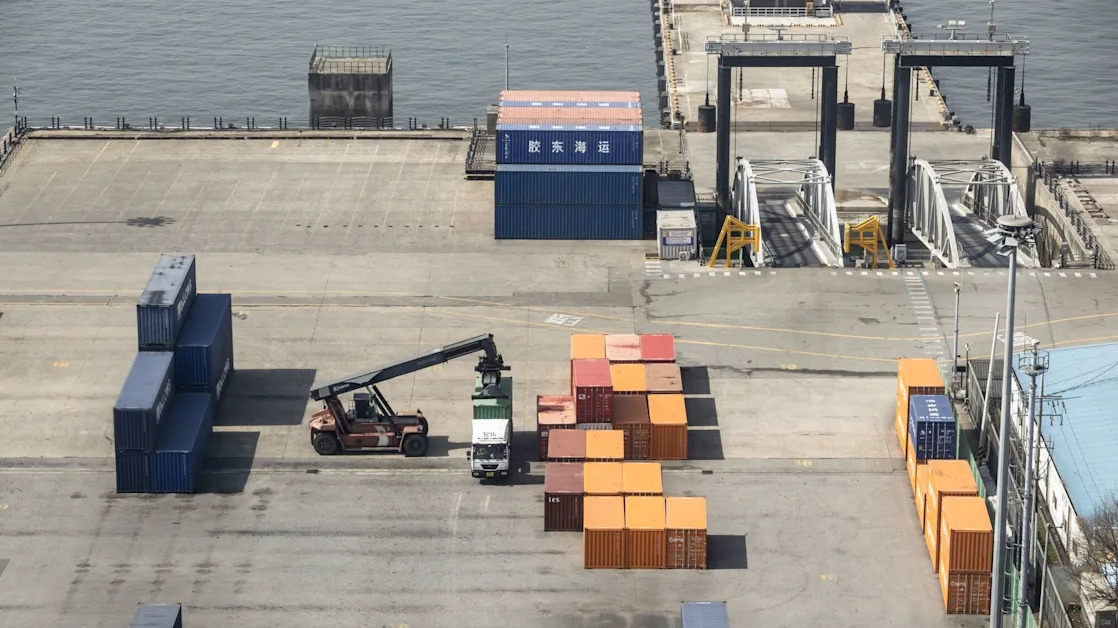(Bloomberg) -- Supply Lines is a daily newsletter that tracks global trade. Sign up here.
South Korea and the US will kick off trade negotiations this week as the Asian export powerhouse seeks to persuade Donald Trump’s administration to ease the punitive levies that are starting to bite the economy.
Secretary of Treasury Scott Bessent and Trade Representative Jamieson Greer will meet with South Korea’s Finance Minister Choi Sang-mok and Industry Minister Ahn Duk-geun in Washington at 8 am local time Thursday, Ahn’s office said.
South Korea will do its best “to find a win-win solution for both countries through calm and serious consultations,” Acting President Han Duck-soo said in a meeting with top policymakers on Monday to discuss strategies going into the negotiations.
South Korea’s export-reliant economy is vulnerable to Trump’s aggressive import levies and the early trade data released Monday revealed how damaging a prolonged trade war could be for Asia’s fourth-biggest economy. Preliminary trade data showed South Korean shipments to the US slumped 14.3% in the first 20 days of April.
Securing trade concessions from the US is vital to stabilize an economy that has been hamstrung by a political crisis unleashed by former President Yoon Suk Yeol’s failed marital law attempt. With Yoon permanently removed from office, South Korea will hold a snap presidential election on June 3.
It remains to be seen how far the acting president in Seoul can carry the negotiations forward when the country is preparing to elect a new leader. Main opposition Democratic Party’s Lee Jae-myung is currently leading in polls.
South Korea, along with Japan, is among the first nations to sit down with the US for tariff negotiations. The outcome of the talks will be closely watched by other nations for clues on what concessions Trump will try to extract as they prepare for their own deals to lower the import duties.
South Korea, a key US ally, was slapped with a 25% across-the-board tariff that has been temporarily reduced to 10% for 90 days. As with other nations, South Korea also faces a 25% levy on shipments of cars, steel and aluminum.
What Bloomberg Economics Says...
“Assuming current tariffs stay in place, we estimate the trade shock could knock as much as 0.7% off GDP by 2028. Fiscal support may cushion, but won’t fully offset, the impact. We now expect growth to slow to 1.0% in 2025 from 2.0% in 2024, down from our January forecast of 1.5%.”
— Hyosung Kwon, economist
The government in Seoul has been reviewing multiple packages to present to the Trump administration as it seeks to narrow its trade surplus with the US, which jumped about 25% in 2024 from a year ago to $55.7 billion. Shipbuilding cooperation, the Alaska pipeline project and defense cost sharing are among the topics that could be discussed at the negotiating table.
Early trade data showed, South Korea’s overall exports fell 5.2% from a year earlier in the first 20 days of this month.
“The figures appear to reflect companies’ wait-and-see mode as the government tries to negotiate a lower duty,” said Cho Chuel, an analyst at the Korea Institute for Industrial Economics & Trade. The numbers could drop further or reverse depending on how the negotiations progress, he added.
While the leadership vacuum continues, South Korean firms have been racing to announce investment plans in the US in the hope of getting a reprieve from Trump’s tariffs. Posco Group said on Monday it signed an MOU with Hyundai Motor Group to participate in Hyundai’s steel mill project in Louisiana.
The Bank of Korea decided to keep its benchmark interest rate steady at 2.75% last week even as it cited a significant increase in downside risks to growth due to trade policies. The bank warned that the economy could see negative growth in the first quarter.


